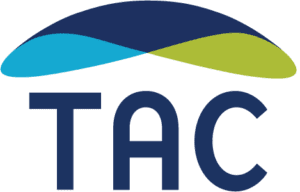From the beginning of the pandemic, TAC consultants assisted cities and states in designing flexible, innovative rapid rehousing models to mitigate the spread of COVID-19 in the homeless population. Strategies included scaling up rapid rehousing (RRH) partnerships to quickly respond to disaster settings, identifying and training agencies new to the Emergency Solutions Grant program and to RRH, creating targeted subsidy program designs, and introducing service-rich models for high acuity participants.
With the infusion of CARES Act and Emergency Solutions Grant – COVID-19 (ESG-CV) funds, providers drew on our technical assistance to expand and improve their RRH programs in promising ways:
Trainings
In California, Arkansas, and Detroit, MI, TAC led rapid rehousing trainings for program managers, case managers, housing navigators, and other staff from Continuums of Care and nonprofits. The sessions covered Core RRH Elements; RRH Direct Practice; and Landlord Recruitment & Engagement to enhance the capacity of providers and agencies new to RRH.
To help with administration and recordkeeping, TAC trained providers on eligible ESG-CV costs and recordkeeping requirements for RRH programs and helped develop COVID case file toolkits, along with guides on remote housing inspections and trauma-informed recordkeeping.
Needs assessments
TAC held provider listening sessions with Continuums of Care in Oklahoma, working with providers to identify capacity-building and peer support opportunities for those operating RRH programs with ESG-CV funds.
Program Implementation
TAC supported communities in launching successful housing surges, moving households quickly out of hotels and other temporary non-congregate settings into permanent housing placements. Housing surges involve innovative landlord recruitment strategies, the ability to flex and pivot to meet changing circumstances, and highly coordinated partnerships between agencies working toward a common goal.
TAC helped build RRH capacity in Mississippi by teaching landlord engagement strategies to the Mississippi Housing Corporation and its ESG-CV subrecipients.
Because braiding sources of funding from federal and state COVID stimulus measures can support more robust RRH programs, TAC guided communities on coordinated investment discussions for ESG-CV recipients and subrecipients.

